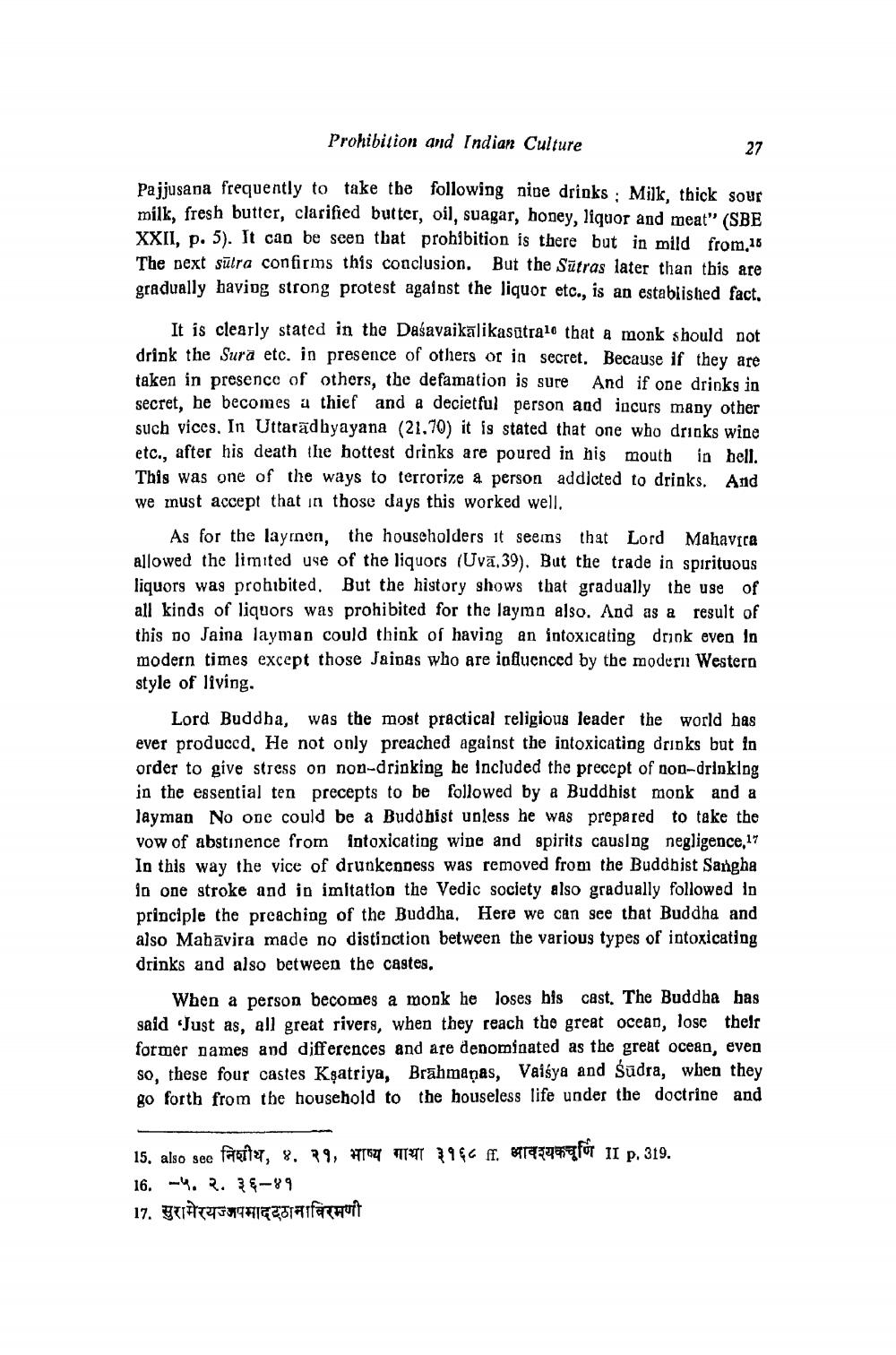________________
Prohibition and Indian Culture
Pajusana frequently to take the following nine drinks: Milk, thick sour milk, fresh butter, clarified butter, oil, suagar, honey, liquor and meat" (SBE XXII, p. 5). It can be seen that prohibition is there but in mild from 18 The next sülra confirms this conclusion. But the Sūtras later than this are gradually having strong protest against the liquor etc., is an established fact.
It is clearly stated in the Daśavaikalikasatralo that a monk should not drink the Sura etc. in presence of others or in secret. Because if they are taken in presence of others, the defamation is sure And if one drinks in secret, he becomes a thief and a decietful person and iacurs many other such vices, In Uttaradhyayana (21.70) it is stated that one who drinks wine etc., after his death the hottest drinks are poured in his mouth in hell. This was one of the ways to terrorize a person addicted to drinks. And we must accept that in those days this worked well.
As for the layrnen, the householders it seems that Lord Mahavica allowed the limited use of the liquors (Uvā. 39). But the trade in spirituous liquors was prohibited. But the history shows that gradually the use of all kinds of liquors was prohibited for the laymo also. And as a result of this no Jaina layman could think of having an intoxicating drink even in modern times except those Jainas who are influenced by the modern Western style of living.
Lord Buddha, was the most practical religious leader the world has ever produced, He not only preached against the intoxicating drinks but in order to give stress on non-drinking he included the precept of non-drinking in the essential ten precepts to be followed by a Buddhist monk and a layman No one could be a Buddhist unless he was prepared to take the vow of abstinence from intoxicating wine and spirits causing negligence.17 In this way the vice of drunkenness was removed from the Buddbist Sangha in one stroke and in imitation the Vedic society also gradually followed in principle the preaching of the Buddha. Here we can see that Buddha and also Mahāvira made no distinction between the various types of intoxicating drinks and also between the castes,
When a person becomes a monk he loses his cast. The Buddha has said "Just as, all great rivers, when they reach the great ocean, lose their former names and differences and are denominated as the great ocean, even so, these four castes Kşatriya, Brahmaņas, Vaisya and Sūdra, when they go forth from the household to the houseless life under the doctrine and
966 ft. sprazarafó II p. 319.
15. also see forta, 8. 79, 47164 16.-4. R. 38-89 17. सुरामेरयज्जपमादठानाविरमणी




